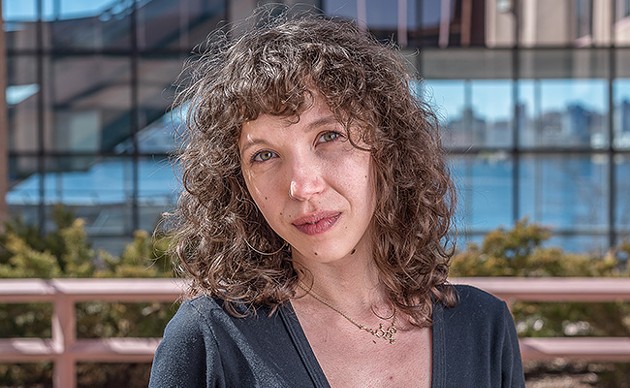
Ezabriell Fraser, @efraser1o3
"In seven days I raised $1,200," says Annie MacEachern, "because I told my community I believed in cannabis."
The Coast: Your business card says you’re a “cannabis crusader.” How’d you pick such a great job title?
Annie MacEachern: The choice of crusader was quite specific because a crusader is kind of aggressive about what they’re doing. They’re fighting for something, and I really identify as someone who is fighting for cannabis. I’m fighting for the normalization, the de-stigmatization and just for fair access for medical patients. And “crusader” sounded better than “fighter for cannabis.”
But legalization is real, it’s happening. Isn’t the fight over?
No, it’s so far from over, especially for medical patients. When I watch the Senate discussions, I see them so easily forgotten, so quickly forgotten when we talk about non-medical cannabis.
What’s the worst case for a medical pot user after rec cannabis becomes legal later this year?
Not having access to medicine. LPs right now are worried they’re not going to have enough supply. I think only one licensed producer in Canada has committed a specific quantity to medical patients in the first year. So that’s the worst-case scenario, that patients won’t have their medicine, because LPs are going to want to sell it to nonmedical people.
Why would the licensed producers prefer the recreational market?
Because they can have access to so many more customers. Medical patients are their repeat consumers, but a lot of them have compassionate pricing so they have lower pricing, in some cases 25 or 30 percent off. And it seems cooler to be selling rec than it is to be selling medicine.
What was your recent Charlottetown event about?
I connected with Jonathan Zaid who is the founder of CFAMM, Canadians for Fair Access to Medical Marijuana, and in PEI this was our first event with them. I curated kind of a panel of medical patients to talk about their stories, and really share and be open with the public about how medical cannabis impacts their life in such a positive way. One of the women has a box full of pharmaceutical pills that she’s been able to stop using—including opiates—which is incredible.
Even with stories like that and full legalization coming, are people still scared of weed?
Yeah, big time. Big time. Especially people that haven’t seen it in 30 or 40 years, because THC amounts go upwards of over 20 percent, and they used to be like two or three percent, four percent.
They’ve definitely started breeding cannabis differently now, and I can understand that would be scary for someone that hasn’t tried it before. Or hasn’t tried it in a long time. “I got high then, what’s it going to do to me now?”
What inspired you to become such a public voice for pot?
Speaking to a business mentor of mine, I talked very privately about my dreams of the cannabis industry. And he told me I had to put my name on my dream. So I came out of the cannabis closet to my community, and started a crowdfunding campaign because I wanted to go to Lift, the cannabis expo and conference in Toronto. In seven days I raised $1,200 because I told my community I believed in cannabis. I believed in the power that it has to help our community, both economically and socially.
Did you face any backlash professionally for coming out as a pot fan?
I’d already established myself as a responsible community member, and that was something that was important. If I was late, I didn’t want people to think it was because I was high, or if I forgot something, I didn’t want to be more critiqued because I had told them of the medicine that I chose to use. So I worked really hard to show that I was a hard-working responsible member of my community. And then I was like, “Pssst, by the way, I consume cannabis every day while I’m doing these things.” And it really didn’t change many people’s opinions.
Interview has been condensed and edited.
